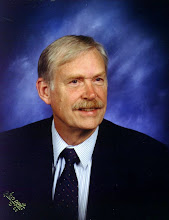There was an old story about the honey dippers who practiced their art in my small city in upper New York State. (I lived there for three years and ten minutes as a member of General Electric’s corporate manufacturing staff.) Citizens’ homes were surrounded by forests and were somewhat rural, so we had no sewer connections. Septic tanks were the rule.
Septic tanks had to be cleaned out from time to time, and the euphemistic name for the folks who did the cleaning was honey dippers. The old story was that honey dippers explained their professions this way: “Well, it may be ____ to you but it’s bread and butter to me.”
That is what I can say about my writing. But it is more than bread and butter to me. I write not for money, but for other reasons (it is a good thing, too). One of these reasons is that I am working on my craft because I know I can do it better. But I can only do it better if I write. Thinking, extemporizing and worrying about the past won’t help. Only practice will help.
There is yet another reason I write: I owe several debts. One is to my Kentucky great-grandfather, who was shot down in 1874 by a member of the Klan; he was trying to save the lives of defenseless black people. In order to justify his murder, this kind man‘s name was blackened by the Klan before the shooting. I strongly felt a need to clear up the record (and to publish the name of the killer). I wrote articles about him and then made up a novel that contained his story. And I paid one more debt.
It is the same way with my third great-grandfather. His stomach was blown away by a shotgun blast at noon on a Friday where everyone could see it happen. This warning was in 1856, near the place where John Brown hacked up six or seven people, and a month or so afterward. My ancestor’s name had to be destroyed first. But one saving grace was that pro-slavery people in his town hated him. Once again I wrote an article or two and then made up a short novel that contained all the facts of the case as related by newspapers of the time. Thus, I paid a second debt.
Until recently, I was substitute teaching in middle school. Often, when the lesson was over, I would tell a story about my kids or about something bizarre in history, and I always tacked on a moral to these short tales. The kids asked me to write down these tales, which I did. I asked the artist, Caleb of Tampa, Florida, to make line sketches to illustrate each one. Caleb was one of the stars of the stories, which became the book, Four on the Floor. And a third debt was paid.
And then there was my first cousin, who was a hero (to me) during WWII. His story needed to be told. He was a Kentucky farmer’s son who became HQ Commandant for Generals Patton, Mark Clark, and Lucien Truscott. He went in early on thee invasions. Promoted four times and given a Bronze Star for bravery and a Purple Heart for wounds, my cousin emerged as a Lieutenant Colonel. He and his wife knew the Pattons and the Clarks. My cousin met King George, Winston Churchill, Ike Eisenhower, the Sultan of Morocco, Prince Borghese of Italy, and many other well-known people of his time. He lived with death and destruction in tents (and less cover) for four years, emerging as a fairly normal American citizen who served his State in business and politics, working into his eighties. I wrote a small history of WWII covering his service. It will be out soon, canceling a fourth debt.
When I wasn’t burdened with a duty to my relatives I wrote a story for me. It was about time travel, one of my favorite subjects (Time Out of Joint).
But mostly, I have been discharging debts and making a few enemies (I was told I am not popular with Klan members and descendants of Klan members). Under no circumstances will my efforts have been wasted. There were debts to be paid and facts to be told. I have discharged the debts and told the facts.
Writing is still more than bread and butter to me.
WWIIKids Books
Patton
Writing
Education
Civil War
Kentucky
Friday, May 13, 2005
Subscribe to:
Post Comments (Atom)


No comments:
Post a Comment